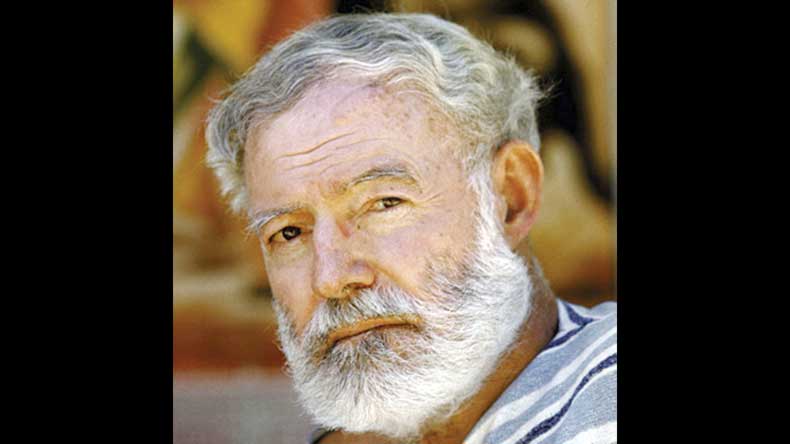“There is nothing to writing,” said Ernest Hemingway. “All you do is sit down at a typewriter and bleed.” Rowing down the Huron river in Michigan, past blue boulders, swifts’ nests, and softshell turtles basking in the last of the evening sun, I find myself wondering how writers approached marketing in those days, that difficult stuff you have to do once the other difficulty, that of writing itself, has been surmounted. (Oh, and how literary excess can sometimes be impossible to avoid, even for Hemingway, who was much touted for his economy of expression.)
A student once asked me how one knows when one has finally become a writer; when, in other words, verb turns to noun, “I write” to “I am a writer.” The pundits say it is when one gets published, and properly publicised: literary festivals, book tours, public talks. It is a form of validation, writers, including those who prefer solitude, are increasingly forced to seek. After all, it is hard enough to follow one’s heart and make a living as a writer, or an artist in general, so why would we make it harder for ourselves, and turn away from fame when it arrives?
These thoughts troubled me during a visit to India this August, to celebrate a year of my novel with book readings and discussions; and again, after my talk at the British Council, when a member in the audience asked me how to become a writer.
My answer, instead, focused on the process of writing itself: being open to seeing the world in unconventional ways, developing a point of view, and trying to write as much as possible. Having been invited to some wonderful literary festivals, the moot questions have grown even louder inside me: caught in a whirlwind of lit-fests, book fairs and promotional tours, where does the writer find solitude and space for error and introspection? How does the writer choose between the personal hierarchies of power brokers, those with the famous last names, the clout or the money, and their endless need for genuflection; and an impersonal market that understands neither politics, nor aesthetics, nor sentiment?
“There is nothing to writing,” said Ernest Hemingway. “All you do is sit down at a typewriter and bleed.”
The questions hit harder when a young writer confides in me about her pain and trauma caused by a powerful “litterateur,” how she had narrated her ordeal to a friend who made the old boys’ club proud by telling the aggressor in question and jeopardising her safety. Being fearful, given the number of women who routinely turn up dead under mysterious circumstances, she used some ingenious tactics to survive. “Vultures,” she intones listlessly. She cannot sleep without medication, cannot dance, cannot write. (Meanwhile, sexual harassment continues worldwide, as a US presidential candidate’s comments show, guilt is determined by the public on the basis of party affiliation, and victims are blamed no matter what route they choose.)
Vultures. Her analogy reminds me of how I have often felt like a little bird myself, tentatively flapping its wings, taking test flights close to the nest, trying to measure with its beak the depth and breadth of the sky, its horizons. When I think of famous writers, I think of big, beautiful birds: peacocks, eagles, flamingos. Or—on a smaller scale—parrots, pigeons, owls, woodpeckers, cardinals, swallows, geese.
And then I think again, as I have before, of hummingbirds. Hummingbirds are the smallest of birds, some of them weighing less than a penny. They rapidly beat their wings, producing a humming sound; not trilling melodies or even salacious screeches, but just a hum. They hibernate for extended periods to conserve energy. Some die within the first year, though others will live for a decade. Some have a prism-layer of cells on their feathers; when light hits, it is diffracted so that the hummingbird will suddenly metamorphose into gorgeous colours.
To be a writer, one should, perhaps, continue to be a verb, to write—bleed. And to judge for oneself, in light of one’s own situation, when to fly away from the madding crowd and back into one’s garden, metaphorically at least, for nectar. Hummingbirds need nectar to survive. And yes, hummingbirds are also the only group of birds that can fly backwards.
Dr Debotri Dhar is a visiting fellow and lecturer at the University of Michigan, Ann Arbor.

